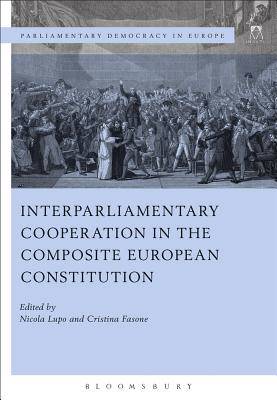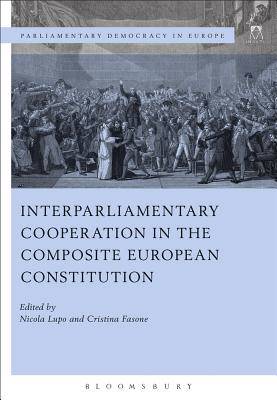
- Afhalen na 1 uur in een winkel met voorraad
- Gratis thuislevering in België vanaf € 30
- Ruim aanbod met 7 miljoen producten
- Afhalen na 1 uur in een winkel met voorraad
- Gratis thuislevering in België vanaf € 30
- Ruim aanbod met 7 miljoen producten
Zoeken
Interparliamentary Cooperation in the Composite European Constitution
€ 84,95
+ 169 punten
Omschrijving
This collection analyses the place and the functioning of interparliamentary cooperation in the EU composite constitutional order, taking into account both the European and the national dimensions. The chapters join the recent scholarship on the role of parliaments in the EU after the Treaty of Lisbon.The aim of this volume is to highlight the constitutional significance of interparliamentary cooperation as a permanent feature of EU democracy and as a new parliamentary function as well as to investigate the practical side of this relatively new phenomenon. To this end the contributors are academics and parliamentary officials from all over Europe.
The volume discusses the developments in interparliamentary cooperation and its implications for the organisation and procedures of national parliaments and the European Parliament, for the fragmented executive of the EU, and for the democratic legitimacy of the overall EU composite Constitution. These issues are examined by looking at the European legislative process, the European Semester and the Treaty revisions. Moreover, the contributions take into account the effects of interparliamentary cooperation on the internal structure of parliaments and analyse the different models of interparliamentary cooperation, ie from COSAC to the new Interparliamentary Conference on Stability, Economic Coordination and Governance in the European Union provided by the Fiscal Compact.
The volume discusses the developments in interparliamentary cooperation and its implications for the organisation and procedures of national parliaments and the European Parliament, for the fragmented executive of the EU, and for the democratic legitimacy of the overall EU composite Constitution. These issues are examined by looking at the European legislative process, the European Semester and the Treaty revisions. Moreover, the contributions take into account the effects of interparliamentary cooperation on the internal structure of parliaments and analyse the different models of interparliamentary cooperation, ie from COSAC to the new Interparliamentary Conference on Stability, Economic Coordination and Governance in the European Union provided by the Fiscal Compact.
Specificaties
Betrokkenen
- Uitgeverij:
Inhoud
- Aantal bladzijden:
- 384
- Taal:
- Engels
- Reeks:
Eigenschappen
- Productcode (EAN):
- 9781509924424
- Verschijningsdatum:
- 23/09/2018
- Uitvoering:
- Paperback
- Formaat:
- Trade paperback (VS)
- Afmetingen:
- 168 mm x 241 mm
- Gewicht:
- 680 g

Alleen bij Standaard Boekhandel
+ 169 punten op je klantenkaart van Standaard Boekhandel
Beoordelingen
We publiceren alleen reviews die voldoen aan de voorwaarden voor reviews. Bekijk onze voorwaarden voor reviews.







